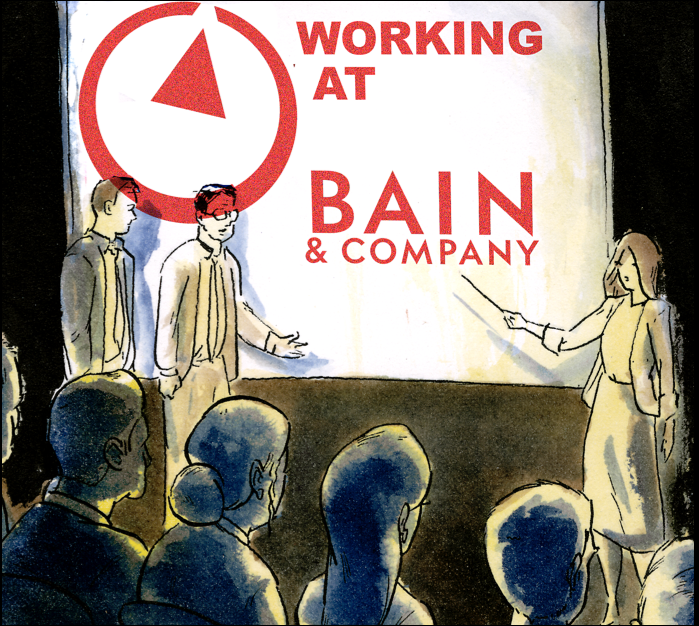Private equity (PE) is a lucrative and exciting career for ambitious business professionals. But it’s a highly competitive world to break into. The most common career path involves a stint in investment banking (IB), which trains you in skills that are highly relevant to PE. PE firms are usually keen to recruit those with IB experience.
But many people are curious about the viability of a different path: going directly from consulting to private equity.
The good news is that this kind of career transition is possible and not particularly uncommon. The bad news is that, compared to the standard route through IB, it can be tough.
Private equity firms attract a large number of ambitious professionals and can afford to be picky in their recruiting. Private equity is a fast-paced, high-pressure environment, and firms want staff who are ready to hit the ground running, not those who will need a lot of hand-holding to build up the basics.
What they’re looking for is evidence that you have the technical skills you’ll need in a PE role: financial modeling, due diligence, and an understanding of all the stages in the deal process. These are skills you’ll naturally pick up in IB—but not so much in consulting.
So how can you tell whether the pivot from consulting to private equity is realistic for you, and what can you do to maximize your chances? Read on to find out.
Note: This article discusses how to get into investment roles in PE. Private equity operations (PE ops) is a separate matter.
A PE ops role tends to be easier for a consultant to get into, but it’s not generally seen as a viable stepping stone to an investment role, nor does it entail the same potential compensation.
One key factor to consider is your career stage when you attempt the transition into the private equity industry—your years of experience, seniority, and whether you have your MBA already.
The key point is that the more experienced you are, the more senior the roles you’ll be competing for; and the more senior the role, the more reluctant a firm will be to hire someone without existing PE or IB experience.
In short, it’s all too easy to “age out” of your shot at entering PE.
Finally, one much-discussed benefit of a top (full-time) MBA is its potential to facilitate a career pivot—i.e., you apply for the MBA while working in consulting and aim to recruit into PE afterward. This can be a good choice if you missed your chance at the earlier recruiting stages.
Conversely, if you already got your MBA and went into (or returned to) consulting after graduation, your options are more limited—you’ve missed the opportune moment to pivot. This doesn’t necessarily make it impossible to do so now, but it stacks the odds against you.
With those considerations in mind, what factors, if they apply to you, make leaving consulting to pivot to private equity a realistic plan?
All the listed factors will improve your odds of successfully pivoting into PE. Some (networking, gaining relevant experience in your current role) are things you may be able to proactively work on before attempting the transition; we’ll discuss strategies below.
Other obstacles are harder to work around and might prove insurmountable. Any proposed career pivot should be informed by a frank assessment of your chances. This is the kind of advice you can get from an expert career coach such as those on the Menlo Coaching team.
For instance, say you already did your MBA and afterward went into a consulting role at a non-MBB firm, where you’ve now worked for a few years without specializing in a particular industry or gaining PE-relevant experience. You’re a very unlikely candidate for any PE role in this situation, and we’d likely advise you to focus your energies elsewhere.
When attempting the consulting-to-PE pivot, there are various steps you can take to put your best foot forward. It’s essential to have the right plan of attack to make the transition work.
As mentioned above, an MBA from a prestigious school can pave the way for a career pivot. If you’re at the right point in your career to pursue an MBA (and don’t already have one!), you should strongly consider this option.
In deciding where to apply, consider both your odds of admission and the school’s ability to get you into a PE role. Some programs offer a “private equity lab” or similar (e.g., Kellogg, Booth, Columbia), allowing students to strengthen their understanding of PE and build up their networks.
Beyond course offerings, consider the program’s actual track record of sending graduates into private equity. You can look at the employment reports released annually by business schools to get an idea of where their graduates end up. Here’s some data on the M7 programs:
| School | Percentage of 2024 grads going into PE |
| Stanford | 18% |
| Harvard | 17% |
| Wharton | 10.6% |
| Chicago Booth | 9.1% |
| Columbia | 5.6% |
| MIT Sloan | 2.4% |
| Kellogg | Does not disclose; 19% total in financial services |
Of course, it helps to cross-reference these numbers with class profiles.
For instance, 16% of Harvard’s class of 2026 come from a PE or venture capital background. It’s safe to assume that most people in these fields return to them after their MBA, so we can infer that a substantial proportion of Harvard alumni going into PE are not actually new to the industry. Adjust expectations accordingly.
If you do pursue an MBA, it’s important to be proactive in your search for a PE role during your studies. You’ll have to go beyond on-campus recruiting, do your own research and networking, and take some long shots. And if the direct pivot into PE doesn’t work out, you may ultimately have to consider an IB role as an intermediate step.
It’s of course valuable to have some existing experience of the PE field within your consulting work.
A typical way to gain this experience is to transfer into the private equity group at your consulting firm. Each MBB firm has something like this: The Bain private equity group certainly leads the pack, but McKinsey and BCG each have their own PE groups. If you’re not already involved in your firm’s PE group, aim to get there.
More broadly, be on the lookout for any consulting work you can take on that provides experience with due diligence, mergers and acquisitions, growth strategy, or operational efficiency.
Of course, you’re unlikely to succeed in a pivot like this by just sending applications without also building up a network of contacts within the industry.

This can be tough. Not only is everyone and their dog trying to break into PE—people already working in PE are likely to be very busy and stressed out and to have better things to do than respond to random outreach.
So while you’re free to try cold-calling and cold-emailing as part of your networking efforts, you’re likely to have better results attempting to network with people with whom you have some real connection.
This naturally connects with the other strategies mentioned above. Perhaps you
The point is that whomever you approach should have a good reason to care about what you’re saying and to trust in your competence. And in reaching out to any connection, be specific about what you’re asking for and what you bring to the table; “Hey, can you help me break into PE?” is not a compelling pitch.
The key reason PE firms are reluctant to recruit consultants is the (often-justified) fear that they won’t bring with them enough existing knowledge of the technical skills and concepts that are essential to PE investing work—and therefore will need the kind of training that PE firms are rarely willing or able to provide.
Some key skills private equity firms tend to look for are
Such skills are normally tested in the recruiting process; PE firms want direct proof of your skills, not just your word that you have them.
Direct experience with these skills through PE-related consulting work is best, but it’s not unusual to have to fill the gaps proactively by enrolling in third-party courses from brands like Training the Street and Wall Street Oasis.

The way you describe yourself to a firm should be informed by what that firm is looking for.
You can potentially hang a compelling narrative about your expertise in a specific industry on the right kind of consulting experience, helping you to appeal to PE firms, or groups within firms, that specialize in that industry.
Such firms may see consultants as generalists who flit between different industries without establishing a foothold in any one field; a specialization helps to combat that perception. (This should be something you can clearly demonstrate, not just a stated interest that isn’t borne out by your resume.)
Conversely, when you’re targeting firms that are more generalist in their approach, investing in various industries, it may be helpful to talk up the variety of your consulting experience and how adaptable it makes you. The point is to adapt your pitch to your audience and make a compelling case for how your experience will add value.
Certain firms in the PE world have a reputation for being more “consultant-friendly” than others. That is, they’ve recruited many consultants previously and are more open to doing so than the typical PE firm.
Consider this research from ListAlpha, which indicates notably high proportions of former MBB consultants working at Charlesbank, Altamont, Berkshire Partners, Bain Capital, Hellman & Friedman, Advent International, EQT, and Permira (though it’s worth noting that this data includes consultants hired for PE ops roles too).
Other firms we’ve heard described as consultant-friendly by our own contacts include Golden Gate Capital, Sycamore Partners, and TA Associates.
You can also do your own ad hoc research into firms that interest you, for example by using LinkedIn to look up what other companies their staff have worked for previously.
Bear in mind that even these firms are still likely to prefer an IB candidate to a consultant. It’s just that they hold to this preference less strictly than others, giving you a better shot at getting your foot in the door.
As for why certain firms like hiring consultants, sometimes it’s obvious: Bain Capital was founded by former Bain consultants and naturally maintains some connection with its namesake—it’s an obvious target if you work at Bain!

Moreover, there are valuable skills and perspectives that former consultants can bring to the table: analyzing the growth potential of a company, the strength of a market, and opportunities for post-acquisition optimization and value creation. For many firms, this skillset is seen as relevant only for the ops team, but some see the value of having these skills in investment roles too.
One area of PE that’s often seen as particularly consultant-friendly is growth equity. With a focus on growth strategy over the kind of financial modeling that’s core to other types of PE, growth equity can be a smoother transition for consultants. The firms listed above include a few with a significant focus on growth equity: Charlesbank, Berkshire Partners, and TA Associates.
Additionally, take into consideration the size of the firm. You may have a better shot at small firms (say, middle market or lower middle market) than huge megafunds like Blackstone—not because of any preference these firms have for consultants but simply because they’re somewhat less desirable targets for applicants and therefore less competitive for anyone.
On the other hand, megafunds are, obviously, big companies and therefore simply recruit more people in absolute terms than smaller firms. You should therefore carefully consider both the absolute and proportional stats on consultant hires at a firm.
Besides the logistics of making the pivot itself, you should of course consider the pros and cons of work in PE relative to consulting.
Both are very well-compensated career paths with a reputation for poor work–life balance. As a general rule, PE pays substantially better but entails a significantly worse work–life balance. We’ll dig into each issue below.
While a management consulting role at a top consulting firm is already a very well-paying job, the average earnings of private equity professionals are a pretty dramatic step up, even at a junior level. For the sake of comparison, some ballpark figures:
If you successfully climb the ranks in PE and attain a VP role, your earning potential will skyrocket thanks to your entitlement to carried interest (aka “carry”) from the firm’s portfolio in addition to your regular pay.
Everyone wants to earn more money, of course, but some may still prioritize work–life balance over higher compensation.
Work in a PE fund is somewhat notorious for its long (and unpredictable) working hours and high levels of stress, especially when starting out in the field and especially around deals. Those for whom a healthy work–life balance is a high priority won’t enjoy this type of work.
As a consultant, your job is probably already demanding, with long hours and plenty of travel. On that basis, you may think you can handle whatever PE throws at you, but bear in mind that on average, PE is a significant step up in the number and unpredictability of hours worked, even coming from consulting.
Your hours at a PE firm can vary quite dramatically depending on whether you’re currently working on a live deal.
During a deal, you’ll work longer hours and are usually expected to be on call at all hours, including weekends. Outside of deals, you’ll likely work more predictable hours and get more down time during the day. But busy deal periods can end up being a big proportion of your time, not just an occasional disruption.

The nature of PE also makes it a stressful, high-pressure environment. Where consultants offer advice, PE professionals actively pursue deals and make decisions that can have enormous financial and human impact on their portfolio companies. The high degree of (literal!) ownership over your decisions inevitably makes it hard to disconnect from work.
If you’ve been involved in the PE group at your consulting firm, you’ve already had a taste of this demanding lifestyle, but it’s still likely to be a step up once you enter the PE industry itself.
Of course, both consulting and PE tend to attract highly ambitious people who are willing to tolerate this hectic lifestyle—or for whom it’s part of the appeal. But it’s good to know what you’re getting into and consider what’s right for you, not only what pays best.
At Menlo Coaching, we pride ourselves on giving realistic advice, whether it’s about your chances of admission to top MBA programs or a prospective career pivot.
We want our clients to feel encouraged and well advised in what they can attempt, to rule out options that are infeasible, and to have backup plans and realistic expectations in the case of risky moves.
Schedule a free consultation with Menlo Coaching to discuss your specific situation and goals and get advice on whether a switch from consulting to PE is in the cards for you—and how best to approach it if so.